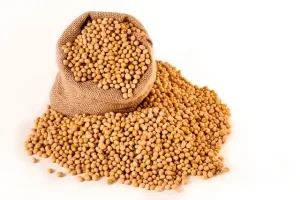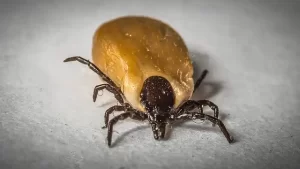This protein can prevent cancer cells from dying and help them spread
- Engineered Soybeans with Pig Protein: A Promising Alternative or Pandora’s Dish?
- Severe Fever with Thrombocytopenia Syndrome (SFTS): A Tick-Borne Threat with High Mortality
- Why Isolating Bananas Extends Their Shelf Life?
- This common vitamin benefits the brain and prevents cognitive decline
- New report reveals Nestlé adding sugar to infant formula sold in poor countries
- Did Cloud Seeding Unleash a Deluge in Dubai?
This protein can prevent cancer cells from dying and help them spread
This protein can prevent cancer cells from dying and help them spread. Cancer cells have a strong ability to spread and metastasize. In fact, 90% of cancer deaths are caused by cancer cell metastasis. For example, breast cancer can metastasize to the brain, and the metastatic breast cancer cells need to adapt to the new environment of the brain.
If we can better understand how those metastatic cancer cells survive in the new environment after metastasis, then cancer cells can be selectively eliminated by inhibiting these survival pathways of cancer cells.
Recently, researchers from the University of Notre Dame published a research paper titled: SGK1 signaling promotes glucose metabolism and survival in extracellular matrix detached cells in Cell Reports.
The study found that a protein called SGK1 can be activated in many types of cancer cells, instructing cells to absorb nutrients including glucose so that cells can survive after being detached from the extracellular matrix to which they are attached.
Non-cancer cells usually die after detaching from the extracellular matrix, but SGK1 activity can promote survival after detachment, thus increasing the chance of cancer spreading or metastasis.
Integrin-mediated loss of attachment to extracellular matrix (ECM) proteins triggers various cellular changes that affect cell viability. The most important of these is the activation of caspase induced by ECM isolation, which is caspase-mediated cell death.
In addition, the loss of ECM attachment can cause profound changes in cell metabolism, which may lead to cell death without nerve dependence.
In this study, the research team described the surprising role of serum/glucocorticoid-regulated kinase-1 (SGK1) in promoting energy production when cells are detached. Experimental data shows that SGK1 activation is necessary and sufficient for ATP production during ECM detachment and anchorage-independent growth.
Specifically, due to the increased transcription level of GLUT1, SGK1 promotes a significant increase in glucose uptake. In addition, the carbon flux of carbon into the pentose phosphate pathway (PPP) is necessary for adaptation to increased glucose uptake, while PPP-mediated glyceraldehyde 3-phosphate (G3P) is necessary for ATP production.
Therefore, these experimental data show that SGK1 is the main regulator of glucose metabolism and cell survival under the conditions of extracellular matrix (ECM) separation.

Since SGK1 is activated in many types of cancer, this also suggests that different types of cancer may have a wider connection.
It is reported that the next focus of the research team is to study how to use this discovery to bring clinical benefits to cancer patients. If these cancer cells that may metastasize can be inhibited, the purpose of preventing the spread of cancer can be achieved. This research also brings new ideas and directions for cancer treatment.
(source:internet, reference only)
Disclaimer of medicaltrend.org



